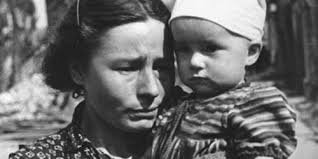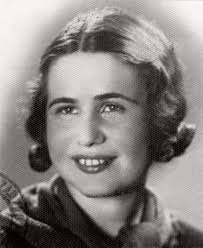Irena Sendler Childhood Shaped by Compassion
Irena Sendler was born on February 15, 1910, in Otwock, Poland, to a Catholic family with deep humanitarian values. Her father, a physician, instilled in her a profound sense of justice by treating impoverished Jewish patients for free—a rarity in early 20th-century Poland. When he died of typhus in 1917, young Irena was left with his final words: “If you see someone drowning, you must jump in to save them, even if you cannot swim.” This principle guided her entire life.
Few know that as a teenager, Sendler was suspended from Warsaw University for defying the ghetto benches policy—a segregation rule forcing Jewish students to sit separately. Her defiance foreshadowed the resistance she would later lead under Nazi occupation.
Irena Sendler: The Secret Network Inside Hell
When Germany invaded Poland in 1939, Sendler, then a social worker, joined Żegota (the Council to Aid Jews), an underground resistance group. Using her credentials from the Warsaw Social Welfare Department, she gained access to the Warsaw Ghetto under the pretense of inspecting sanitation. What the Nazis didn’t know was that she smuggled in food, medicine, and hope—while smuggling out Jewish children to safety.
Her most daring tactic? Training a stray dog to bark on command, masking the cries of infants she carried in burlap sacks, toolboxes, and even coffins. Over 2,500 children escaped this way, each given a new Catholic identity and hidden with Polish families, convents, or orphanages.
The Jar of Life: Recording Names in Secret
Sendler’s most extraordinary act of defiance was documenting every rescued child’s real name, birth family, and hiding place on thin strips of paper. She buried these lists in glass jars beneath an apple tree in a friend’s yard, hoping to reunite families after the war. This risky decision later helped Holocaust survivors reclaim their identities—though tragically, most parents perished in Treblinka.
In 1943, the Gestapo arrested and tortured her, breaking her feet and legs. Yet she revealed nothing, even after being sentenced to death. Żegota bribed a guard to spare her, and she spent the rest of the war in hiding, continuing her mission under a pseudonym.
Irena Sendler Post-War Persecution and Silence
After the war, Communist Poland persecuted Sendler for her ties to the Polish Underground. She was interrogated, her heroism erased from official histories. For decades, she lived in obscurity, working as a midwife while quietly helping Jewish organizations trace survivors.
A little-known fact: In 1965, Israel’s Yad Vashem recognized her as Righteous Among the Nations, but Poland’s government denied her permission to attend the ceremony. She wouldn’t see Jerusalem until 1983.

Late Recognition and Global Impact of Irena Sendler
Sendler’s story remained buried until 1999, when Kansas high school students uncovered her history for a National History Day project. Their play, Life in a Jar, went viral, sparking international acclaim. Overnight, the 90-year-old became a symbol of courage, meeting world leaders and receiving Poland’s highest honors.
Even in her final years, she defied expectations. When asked about her legacy, she snapped, “I could have done more.”
The Controversies and Complex Truths
Some critics argue Sendler’s story was mythologized—for instance, the oft-cited “2,500 saved children” includes those rescued by her entire network. Yet archives confirm she personally smuggled at least 400 children, a staggering feat. Another uncomfortable truth: many Polish foster families later refused to return Jewish children, believing they’d been “saved” for Christianity.
Sendler herself grappled with this, admitting, “We had to make unbearable choices to outwit an unbearable evil.”
A Living Lesson in Moral Courage
Sendler’s legacy extends beyond WWII. Her methods inspired modern human traffickers and refugee aid groups, proving one person’s defiance can ripple across generations. The Irena Sendler Award, established in 2008, honors educators who teach tolerance—fitting for a woman who believed “children are the future of memory.”
Death and Immortal Legacy
Irena Sendler died on May 12, 2008, at age 98. Poland declared a day of mourning, and her story is now taught in schools worldwide. Yet her greatest tribute may be the thousands of descendants of those she saved—living proof that light can outlast darkness.
Go to main page


